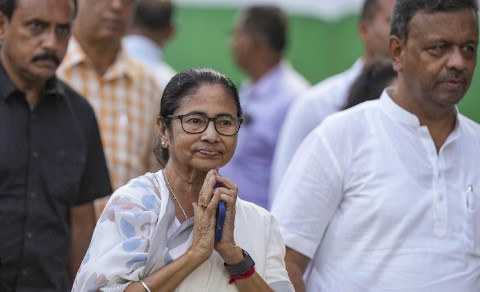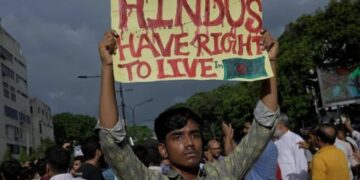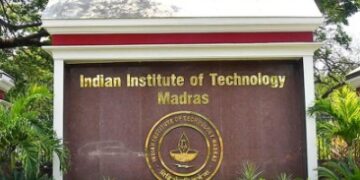West Bengal Chief Minister Mamata Banerjee abruptly exited NITI Aayog’s 9th Governing Council meeting in New Delhi, alleging that her microphone was muted and she was only allowed to speak for five minutes. The meeting, chaired by Prime Minister Narendra Modi, is focused on Bharat’s developmental goals.
“I expressed that the Central Government should not discriminate against state governments,” Banerjee told reporters after leaving the meeting. “I wanted to speak, but my mic was muted. People before me spoke for 10-20 minutes. I was only allowed to speak for five minutes. This is insulting,” she stated.
Banerjee stressed that she was the sole representative from the Opposition attending the meeting, and felt disrespected by the way her speaking time was managed.
In a notable show of dissent, several Opposition-ruled States have opted to boycott the meeting.
CMs from Congress-ruled States — Karnataka’s Siddaramaiah, Himachal Pradesh’s Sukhvinder Singh Sukhu, and Telangana’s Revanth Reddy — have cited alleged bias against their States in the Union Budget 2024 as their reason for not attending.
Additionally, Tamil Nadu CM and DMK leader MK Stalin, Kerala CM Pinarayi Vijayan, and Aam Aadmi Party-led Punjab and Delhi Governments have also declared their boycott of the meeting.
Despite the boycott announcements, Banerjee attended the meeting, advocating for a united platform to voice their concerns.
The NITI Aayog meeting’s agenda focuses on the ambitious goal of transforming Bharat into a developed nation by 2047.
It aims to enhance participative governance and enhance collaboration between the Central and State governments, aiming to improve the quality of life for both rural and urban populations by strengthening government intervention delivery mechanisms.
The council, the apex body of NITI Aayog, includes all CMs, lieutenant governors of Union Territories, and several Union ministers. PM Modi serves as the chairman of NITI Aayog.
The meeting also reviews recommendations from the 3rd National Conference of chief secretaries held in December last year, addressing five key themes: access to drinking water, quality and efficiency of electricity, accessibility and affordability of healthcare, access and quality of schooling, and digitization and registration of land and property.
In 2023, NITI Aayog was tasked with consolidating 10 sectoral thematic visions into a comprehensive vision for “Viksit Bharat @2047,” aiming for India to become a $30 trillion economy by its 100th year of independence. This vision document encompasses economic growth, social progress, environmental sustainability, and good governance.

















